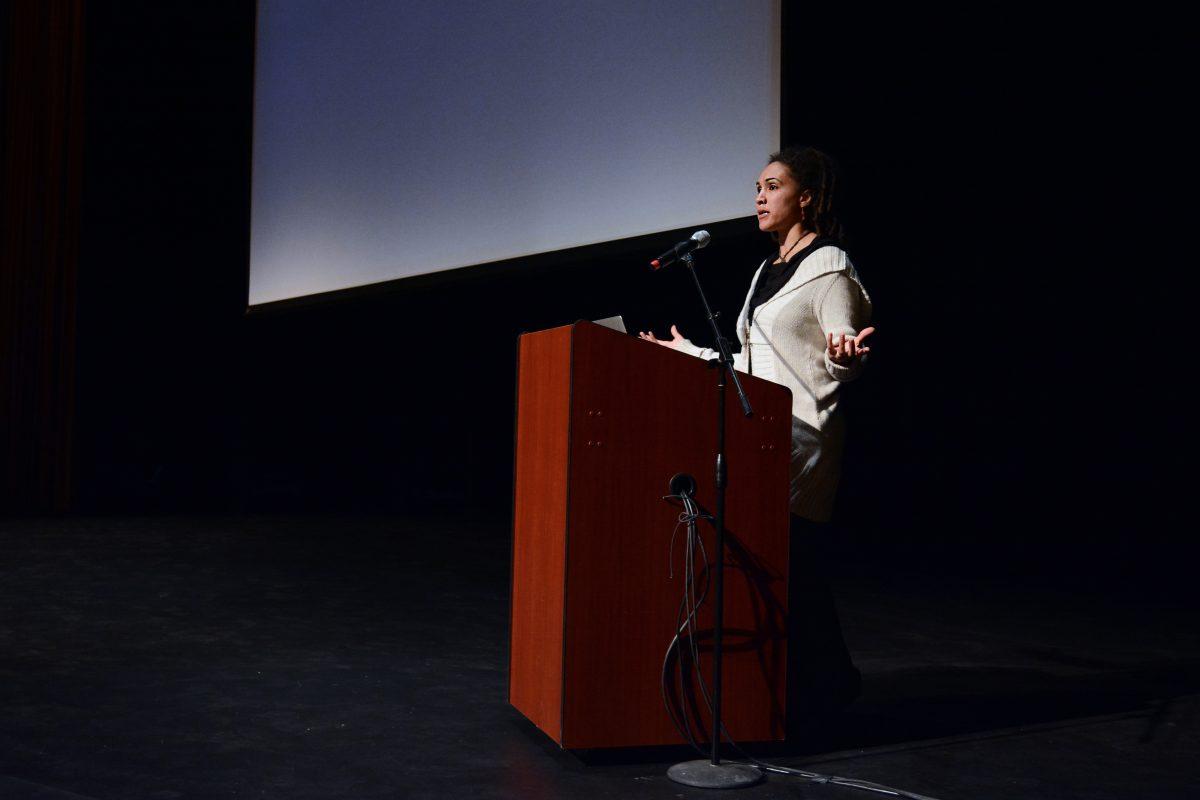A professor from UNC-Chapel Hill discussed the role music and artistic image has had on Congolese culture in front of about 50 people in Titmus Theatre on Friday.
Chérie River Ndaliko, a professor of music, spoke at the third installment of N.C. State’s Price Music Lecture Series, which is emphasizing African culture this year.
Ndaliko’s research considers radical arts interventions in conflict regions of Africa, with an emphasis about the eastern region of the Democratic Republic of the Congo. According to Ndaliko, radical arts interventions can be defined as using music to promote social justice.
“People from all over the world, in all different cultural contexts, in all different situations and circumstances, partake in musical activity,” Ndaliko said. “Music is central to many cultures around the world, but I suggest that the stakes of music making are particularly high when we are talking about a conflict region.”
Ndaliko talked about the internal conflict in the Congo, which, based on her research, is the deadliest conflict since World War II.
According to Ndaliko, the conflict is characterized by rampant sexual violence, implementation of child soldiers and oppression on a mass scale.
In addition to her teaching and research, Ndaliko also serves as co-director of the Yole!Africa cultural center in the Congo. Yole!Africa promotes a global dialogue and raises awareness about the issues in the Congo through creative expression.
The program provides young-Congolese people the skills necessary to share their stories on a global scale.
“In times of conflict, telling one’s own story is the most powerful action that a person can engage in,” Ndaliko said. “The story is told inevitability influences how the world views the conflict. Music creates a platform for people to engage in the world in a way that they could not achieve by any other means.”
Ndaliko discussed the production of Yole!Africa’s current major project, Art on the FrontLines. The music video series expresses the struggles of the Congolese people while providing a political critique about the conflict.
Yole!Africa releases a new video every Thursday on its YouTube channel. Ndaliko emphasized the power of music, especially among their large illiterate population and across cultural boundaries.
The music featured in Art on the FrontLines, has an intentionally recognizable sound. According to Ndaliko, Yole!Africa aims to connect with the world at large and not just with a specific group of Africans.
The music is a traditional hip-hop style that is familiar to most people, Ndaliko said. The program intentionally involves more global sounds, which allows the issue to be sonically connected with the rest of the world.
“The familiarity of the music further makes the critique that they offer through the lyrics more powerful,” Ndaliko said. “This is about human beings, and not about Africans, and that is the choice made for this music.”
Many of the participants in Yole!Africa go on to work in politics, medicine or business. Ndaliko said the program provides young people with not only creative skills, but also skills for participants to take control of their own lives. Ndaliko said the movement is a growing success.
“The Congolese are working very hard to transform their own reality,” Ndaliko said. “If we do connect, it is possible to see the world through the eyes of another person, or the ears I should say.”








